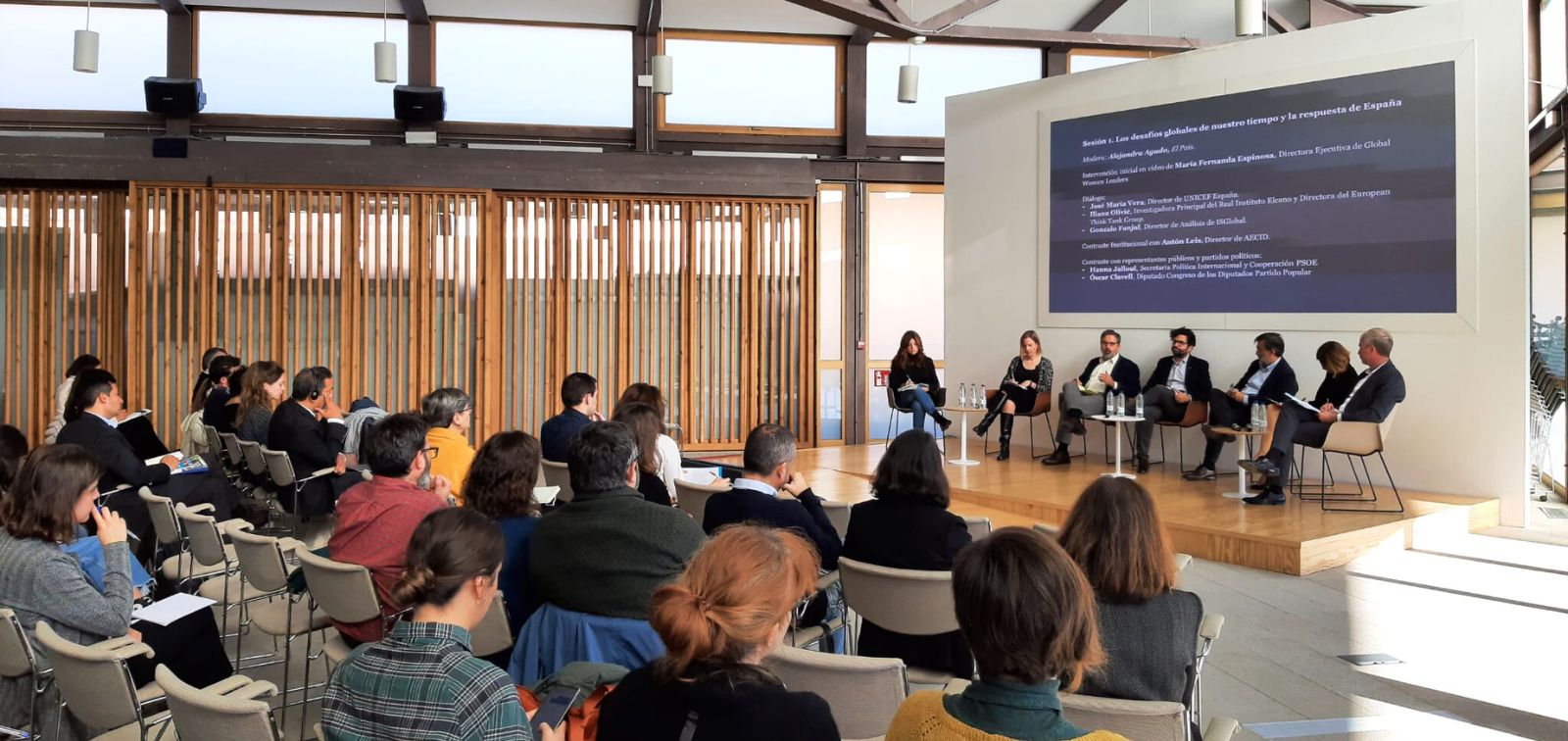ISGlobal and UNICEF Join Forces to Discuss Spain's Role in Confronting the Global Challenges of Our Time
The forum brought together experts in global health and development cooperation, political leaders, and members of civil society for a process of reflection and dialogue on the current global health challenges
27.11.2023
What role can and should Spain play in the face of today's global challenges? What opportunities does the new Spanish Cooperation Law offer? These and other questions were discussed at a conference organised by ISGlobal and UNICEF on Thursday, 23rd November at the Colegio de Arquitectos de Madrid (COAM).
The Forum identified the main challenges in global health and reflected on how Spain can maximise its impact and influence in responding to them. It also addressed Spain's contribution to global health after the COVID-19 pandemic, which placed this field at the centre of the international political and global security agenda.
Each session began with a dialogue between experts, who set the stage and highlighted key elements for reflection on various topics. Following this, public officials from different political parties and public administrations, as well as representatives of civil society, offered their perspectives and provided a backdrop to identify opportunities and challenges for moving from reflection to action.
The main challenges in a context of multiple crises
The first session provided a snapshot of the current world situation, where multiple crises, including health, climate and humanitarian, coexist. Speakers agreed that in this post-pandemic era, global health has a window of opportunity that must be seized by advancing the international pandemic treaty, investing in primary health care, and making up for lost time in the fight against diseases such as HIV, malaria and tuberculosis, whose progress has been undermined by the HIV/AIDS pandemic.
"We are seeing regression or stagnation on most of the Sustainable Development Goals, but we must use this one step back to take two steps forward. The COVID-19 pandemic showed what the international community can do when there is political will," said Gonzalo Fanjul, Policy Director at ISGlobal. For his part, José María Vera, Director of Unicef Spain, highlighted the setback that has occurred in several indicators related to children, such as malnutrition and vaccination, and defended the need for a comprehensive approach that takes into account the current context of polycrisis.
Antón Leis, Director of the Spanish Agency for International Development Cooperation (AECID), also participated in the round table. Leis emphasised that in face of the walls that are being built, Spain must respond by building bridges and playing a proactive role in addressing the global conflicts and challenges of our time.
The opportunities offered by the new Spanish law on cooperation
The second round table delved into the global situation of children and explored how Spanish cooperation can and should respond to safeguard children's rights, which are violated in so many countries. The discussion also spotlighted a significant milestone of the new Spanish Cooperation Law, in force since February 2023, which establishes that Spain will allocate 0.7% of its GDP to development cooperation by 2030, instead of the current 0.28%.
In this sense, the speakers underscored the importance of putting children at the forefront of development cooperation policies. "We need to put children and young people at the centre of cooperation and involve them as active agents of change," said Inés Lezama, Coordinator of UNICEF's International Nutrition Cluster. The panel also discussed the current complex geopolitical context, with a specific focus on the war in Gaza and the need for strong cooperation between states to end this and other ongoing conflicts and to ensure that international humanitarian law is respected.
Global health at the forefront of Spanish cooperation
The third and final session of the Forum highlighted on AECID’s initiatives in the field of global health. Participants reflected on the strategic framework that countries should adopt to respond to global challenges and the importance of forging alliances both locally and internationally.
Wrapping up the round table and the forum debates as a whole, Virginia Rodríguez, Advocacy Coordinator at ISGlobal and session moderator, noted that "we live in a world of multiple crises, but we must seize the opportunity to make progress on those aspects on which we all agree. Global health is certainly an area where we can all move forward together.
>> See the full programme
Video



